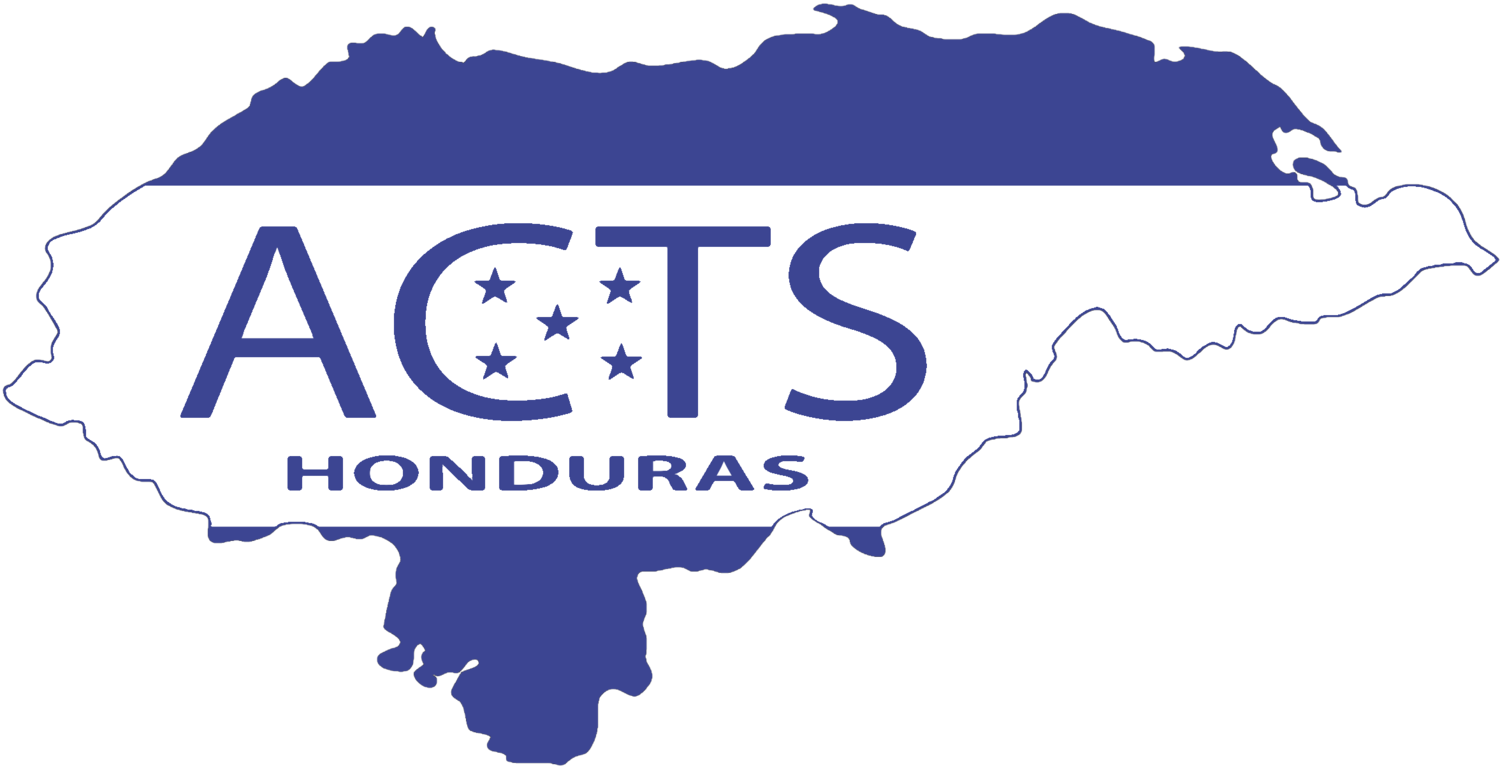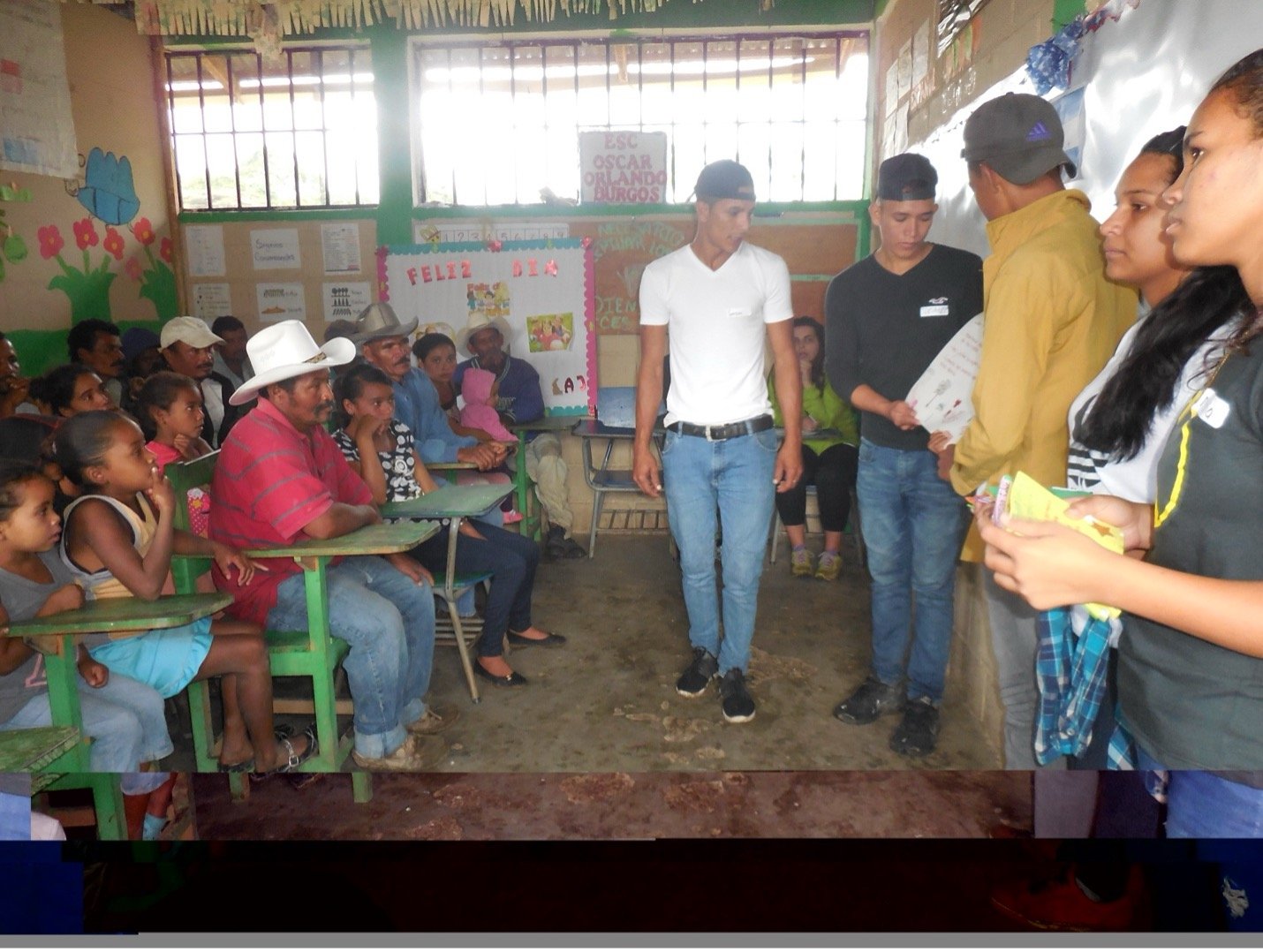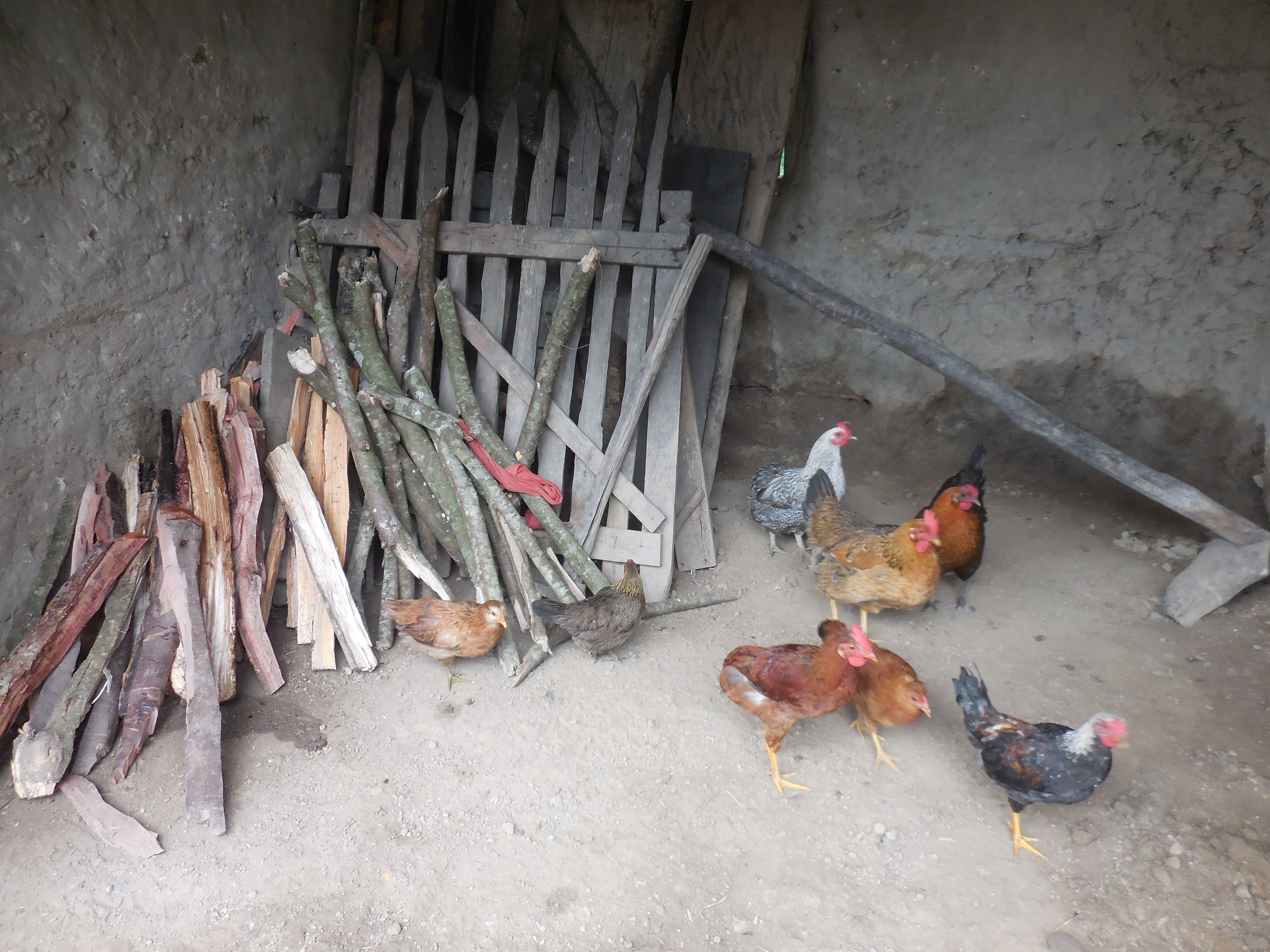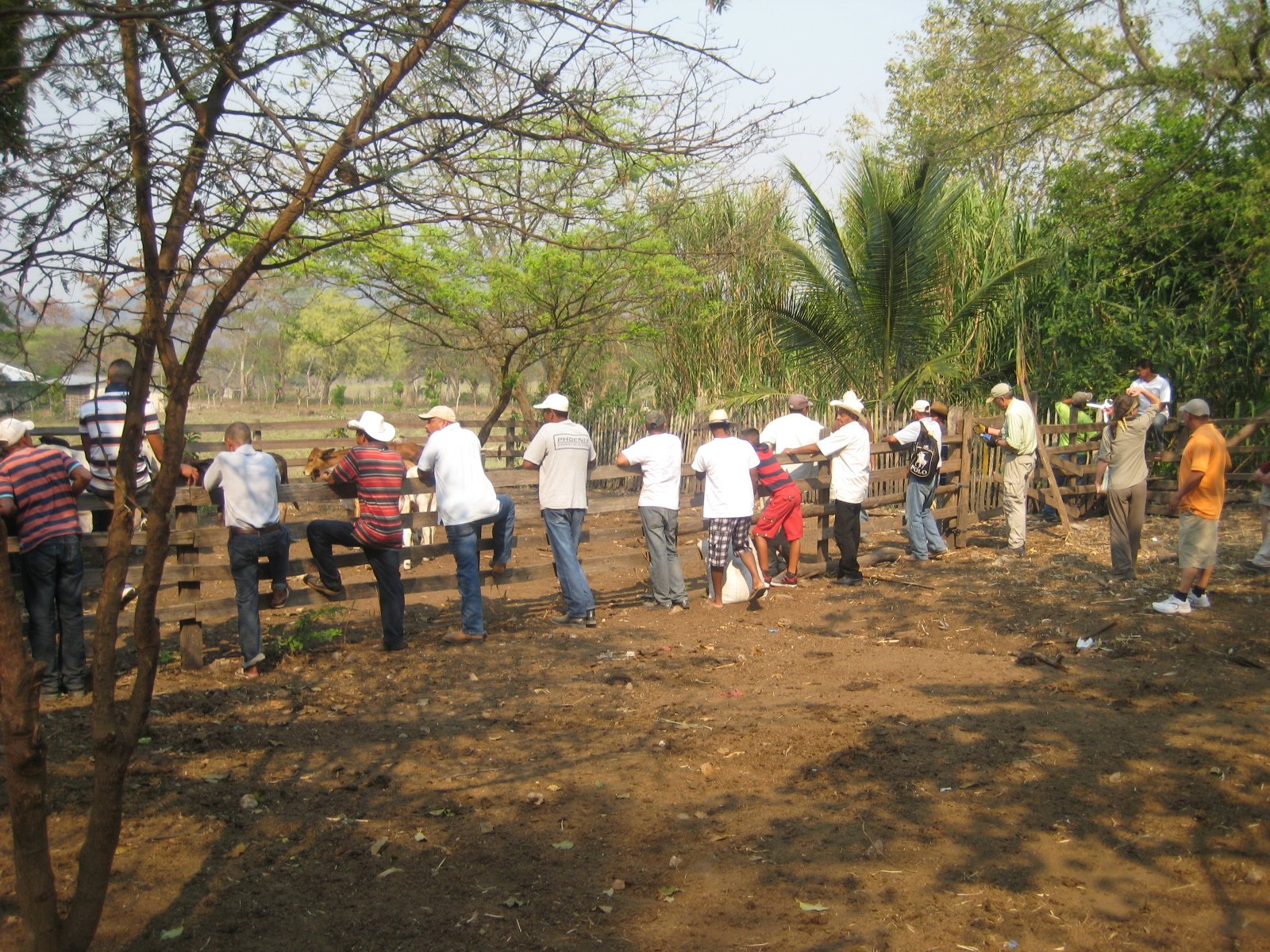
Converting to regenerative agriculture
Globally, there is consensus that regenerative agriculture which puts nutrients back into farmed soil by multiple efforts including companion planting, cover crops, and customized approaches based on local situations is the best approach to improving agriculture – from family farms to industrial farming.
Converting to regenerative agriculture from subsistence farming is not simple.
In traditional subsistence farming, families raise the food they eat. For decades, this has been the core of the economy in the El Rosario region. Some families own the land they farm. Other men work as day laborers. In good years, the corn and bean harvests exceed what is needed for basic nutrition and the excess is sold, providing cash necessary for other household expenses. In poor years, with insufficient rain, the crops are small or fail entirely. The need for ACTS’ level and type of support for agriculture has varied in the past decade in response to frequent extreme heat, drought, and violent storms.
El Rosario and surrounding communities have persistent, long-term drought in a region known for difficult, arid conditions. With global warming, the hot days are hotter, drought conditions are sustained over years, and the infrequent rainstorms are often torrential. For example, in 2023, only the month of October netted enough rainfall to replenish the water table. Every other month was a net loss to essential water stored underground in aquafers that are the only public water supply. Today, it is hotter and drier than ever before.
Episodes of torrential rain on arid soil result in tremendous run-off and loss of soil. Note this does not say “loss of topsoil;” the topsoil is long gone. Farmers coax crops from soil that is depleted and only productive with the addition of chemical fertilizers, pesticides, and fungicides. These chemicals, are expensive, can be dangerous to farmers and their families, and undesirable in crops.
Moving to regenerative agriculture by updating farming practices to rebuild the soil is the top priority of the ACTS’ Agricultural Committee in cooperation with the local farming leadership. Each proposed change means a pivot from traditional practices. In a social context where how to farm is passed from men to boys on the same land farmed by their ancestors, any change is challenging. Here’s the rub – though changing climate, poor soils and poor harvests are easy to recognize, and the local farming communities are living with less production and increased hunger, changing to new and unknown techniques is frightening.
ACTS is building an international network of relationships to teach about options and encourage local mini coalitions willing to try new ideas. When others can see better results from the new methods, they may be willing to try changes too.
In 2023, ACTS sponsored research to get location specific data on the El Rosario physical environment. We assembled an expert panel of scientists from Brazil, Honduras, and the U.S. onsite in El Rosario to gather contemporary samples and data related to the soil, current crops, water, and air quality.
The findings by our expert panel are unequivocal. The soil in and around El Rosario is desperately insufficient in all three measurable qualities used by soil scientists. Physical testing of soil is measurement of the type of particles (clay, sand, rock, etc.) that make up the soil, and that mixture is critical to the soils’ ability to hold water. Chemical testing of soil measures the minerals essential to help plants grow. Biological testing of soil measures the current and formerly living things within the soil such as animal dung, plant matter, and insects that contribute to the richness of soil.
The need for regenerative techniques is critical and top priority for the ACTS Agriculture Committee. We work with Honduran NGOs expert in teaching in that environment and the local farmers most interested in trying new options. ACTS is committed to providing materials and equipment over time.
Previous ACTS Agriculture Projects
The goal of the agricultural center is safe handling of agricultural chemicals.
The risks of handing and storing agricultural pesticides (an umbrella term commonly used for any fungicides, insecticides, and chemical fertilizers) are known to range from minimal or suspect to significant and very dangerous. In Honduras, poor farmers buy pesticides from hardware stores and take home their materials in small bags without labels. Even if they had labels, understanding the information would be impossible – the average farmer in El Rosario has just three years of education. Even highly educated people find the labels at the stores incomprehensible. As ACTS’ Brad Taylor DVM said, “I am fluent in Spanish and English, have scientific training, and a pair of expensive eyeglasses and still can’t understand what the labels say.”
With this reality, we focused on preventing harm and began with building the Agricultural Center in 2017. Located in the middle of El Rosario, it provides safe, lockable storage for individually owned pesticides, which eliminates storing dangerous chemicals in private homes. The Agricultural Center provides personal protective equipment and instruction on how to use it correctly. Post pesticide spraying, farmers come to the Agricultural Center to wash themselves, their clothing, and equipment. This ensures when they return to their families they are not carrying residue on their bodies or equipment that could harm others.
This father of young children appreciates the Agriculture Center’s facilities where he can wash everything, even his boots, to make certain he is not taking any agricultural chemicals into his home after a day of using a backpack sprayer.
Investigators from Dartmouth Cancer Center and Geisel School of Medicine collaborated on a study that found a novel teaching method was effective in training farmers to use safer techniques when spraying pesticides. Here, Brad Taylor teaches farmers how to don and doff protective gloves without contamination from chemicals.
Training began with teens in the Fuerza leadership program who then trained the farmers with the overall goals of family safety.
Drastic Drought in 2023 Required a Novel Rescue Plan to Prevent Widespread Hunger
Weather variations in 2023 resulted in extreme drought and prevented normal planting cycles of corn and beans. Some families facing hunger and with no options ate the corn and beans they had saved to use for seeds. Many others had a few seeds but no cash to buy fertilizer and pesticides necessary to plant in the depleted soil. Households led by women, who do not traditionally farm corn and beans, were reliant on neighbors for help or suffered from hunger.
ACTS consulted with local Honduran leaders and asked them to propose a program that would bridge this extreme situation. With care to ensure every family was touched, they proposed a multifactorial plan to purchase bulk corn and beans and loan them to families for later repayment of corn and beans creating a circular fund. Delayed rains arrived months after the normal rainy season but in just enough time for the farmers to squeeze in a short planting season before the dry hot weather was back in April.
Women are Learning to Improve Family Diets with Kitchen Gardens
Dried corn and beans used to make tortillas and frijoles are the basis of the traditional Honduran diet. These are the major crops grown by men and teenage boys in large fields usually a distance from the residential areas.
Local women anxious to diversify their family’s diets created the Hope & Faith Garden Group to learn how to grow other vegetables in dooryard plots. With ACTS’ assistance and coaching, they meet monthly to learn more and troubleshoot their gardening concerns. Over several years, ACTS has supported improvements to the home plots including fencing, drip irrigation, and small holding tanks for water in dry periods.
Neutering Farm Animals Makes Community Life Safer for Humans
In the communities around El Rosario, most pigs, horses, chickens, and dogs free-range. Out of concern for humans who are sometimes bumped, stepped on, or knocked down by excited animals, ACTS’ veterinarian Brad Taylor began talking with farmers about neutering male animals to create a safer environment. At the outset, the answer was, 100 percent, “no, that’s not our way,” but over two years, farmers reconsidered and asked to learn an easy technique.
Brad Taylor taught farmers a quick sterilization technique for male piglets.
Many families keep chickens and when times are good, they occasionally eat one. Primarily, they provide families with eggs.

Families with some savings invest in cattle for meat rather than banking their money. Unfortunately, cattle use scarce water resources and are subject to diseases, accidents, and theft.
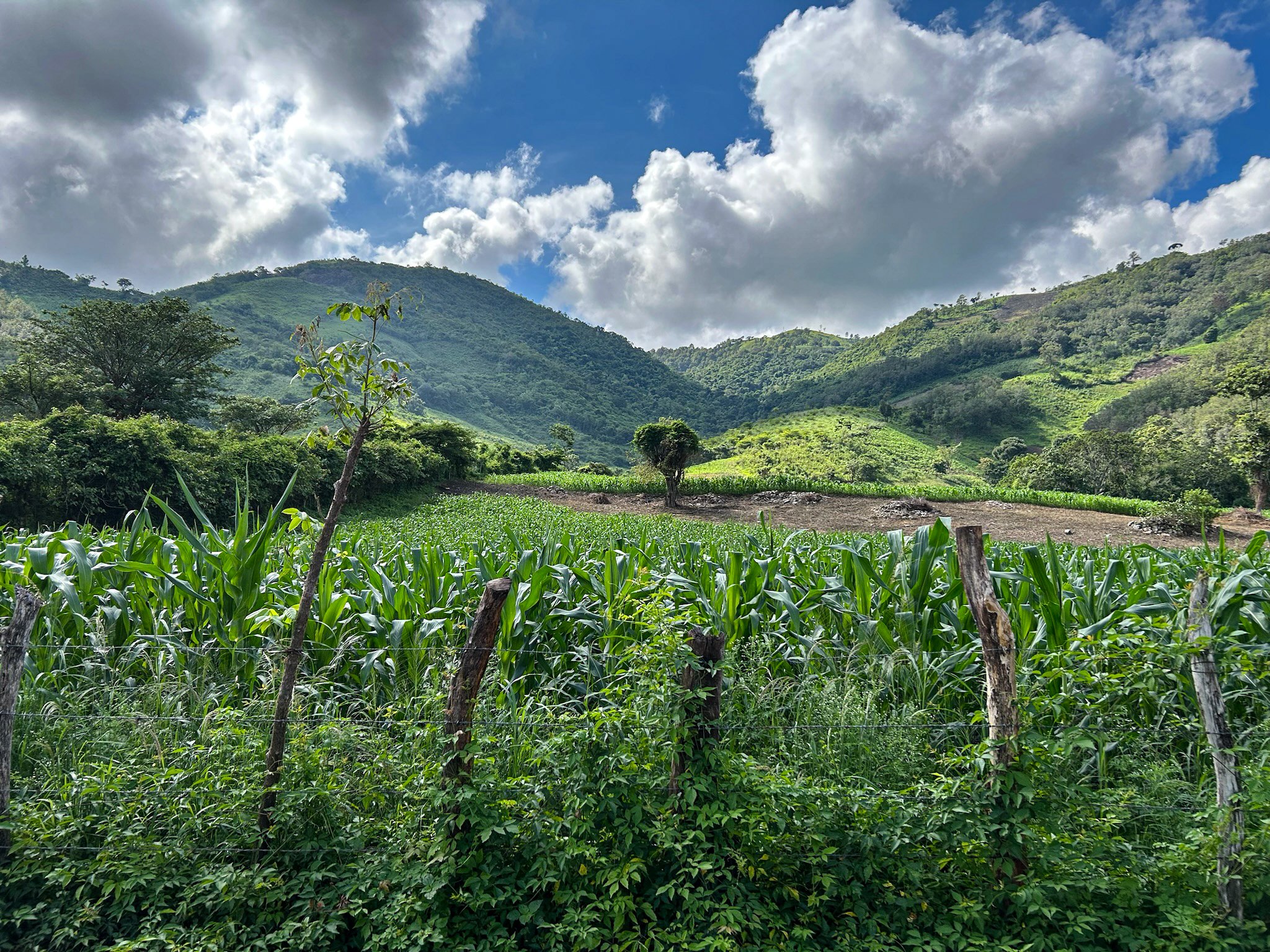
Dried corn and beans are staples. Corn is planted first, then the bean vines climb the cornstalks. The more successful farmers have enough for their families and some to sell; marginalized families barely eke out a living. Recently, unpredictable rains have wreaked havoc, and farmers have required bailouts from ACTS to live until the next harvest.
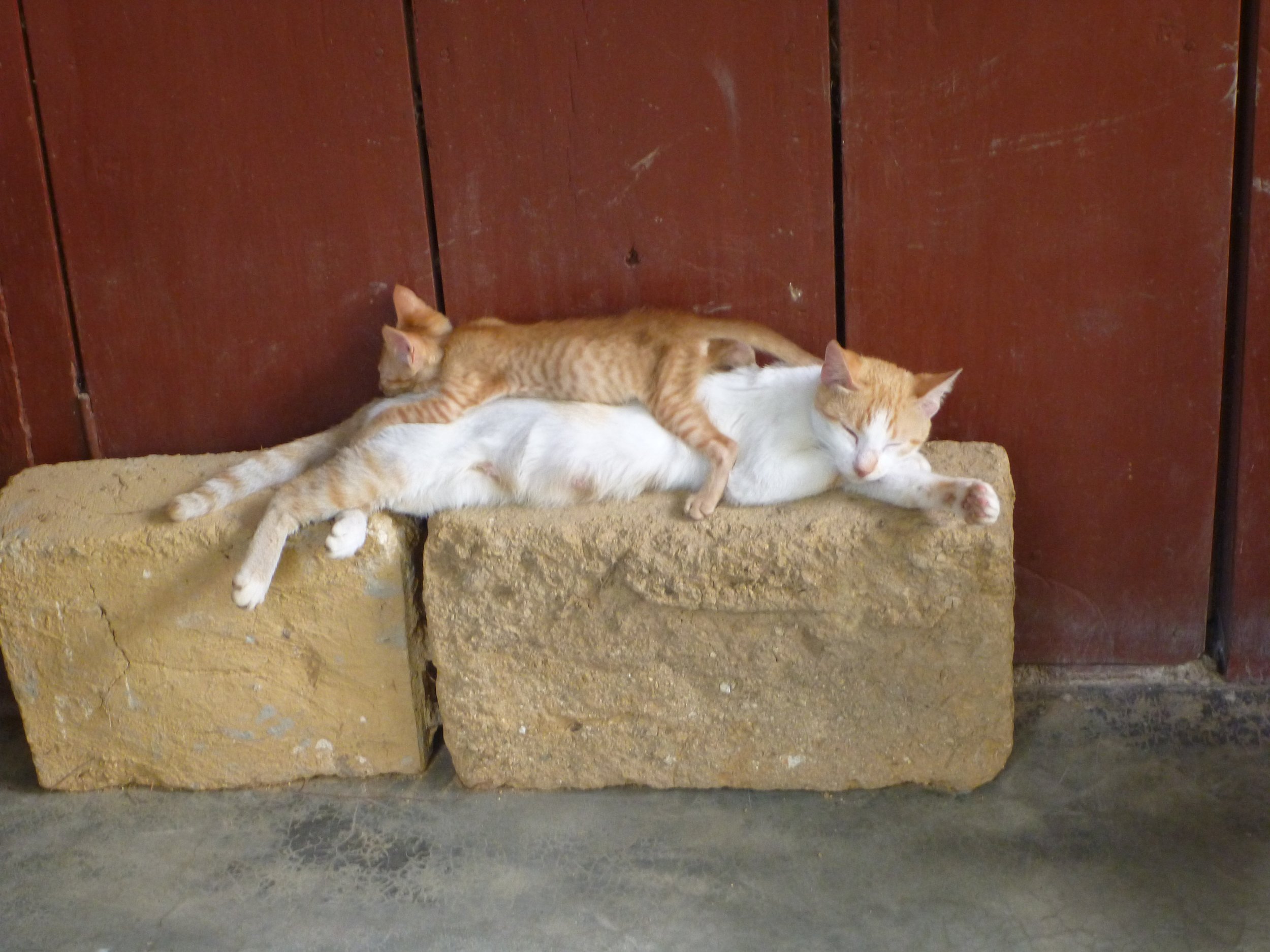
Animals in El Rosario are not neutered and there is often a bumper crop of puppies and kittens.
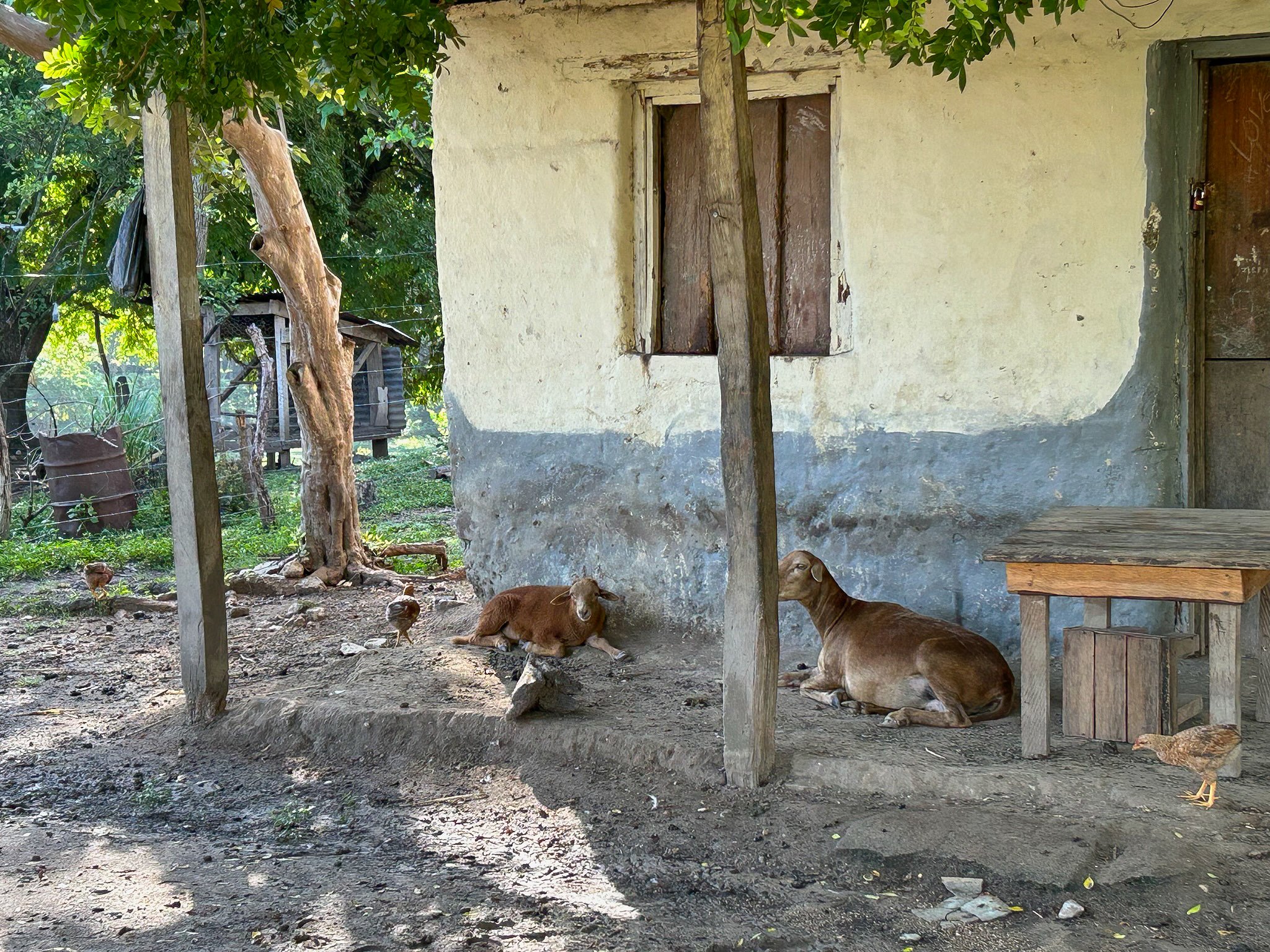
Farm animals are kept close to the household for their security. These goats are being raised to sell for their meat.
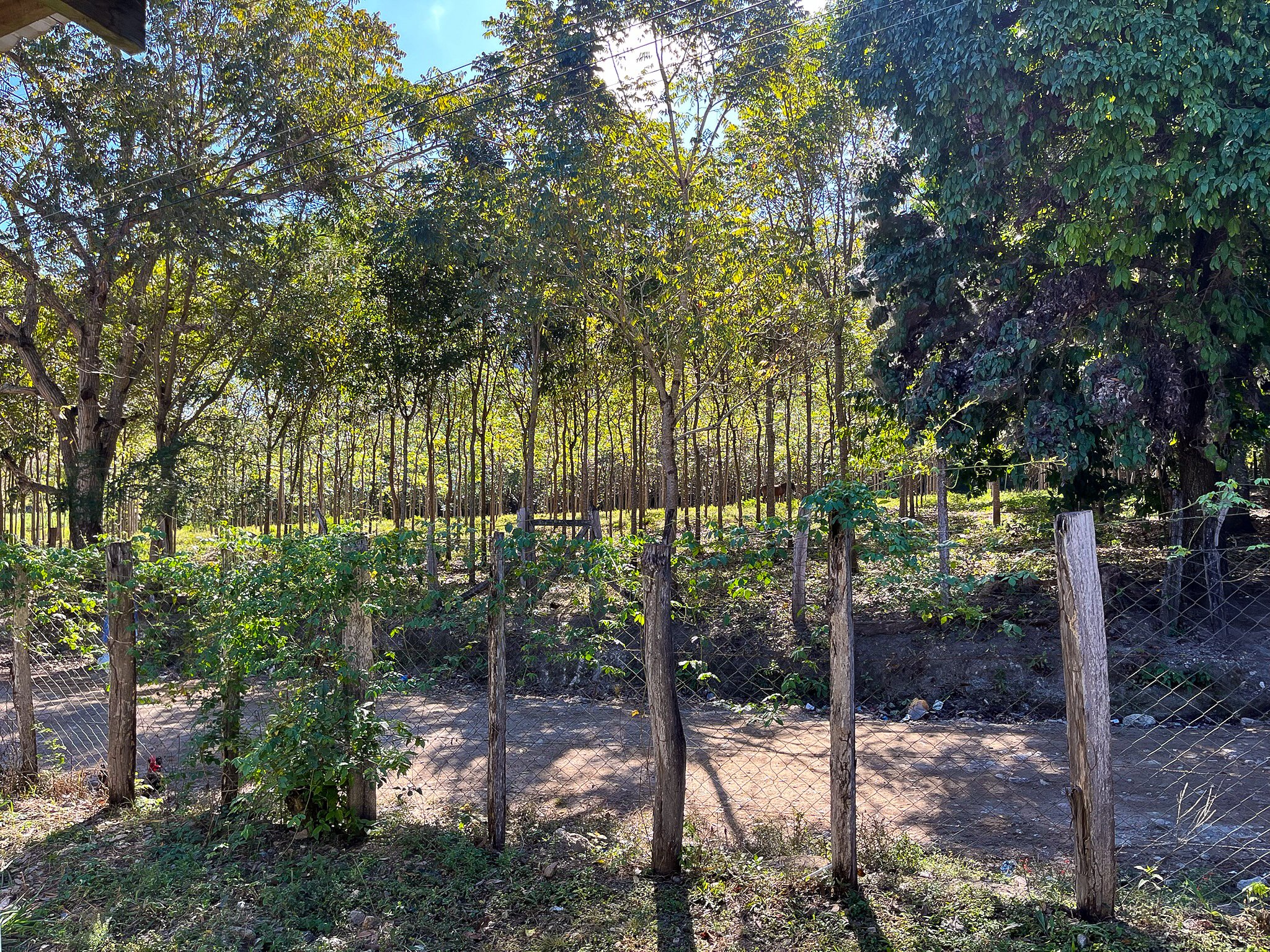
Honduras is a deforested country, and the government has tight regulations for harvesting trees. These mahogany trees are registered with the government and will be legally harvested for the benefit of the community when they are mature in 10 years.
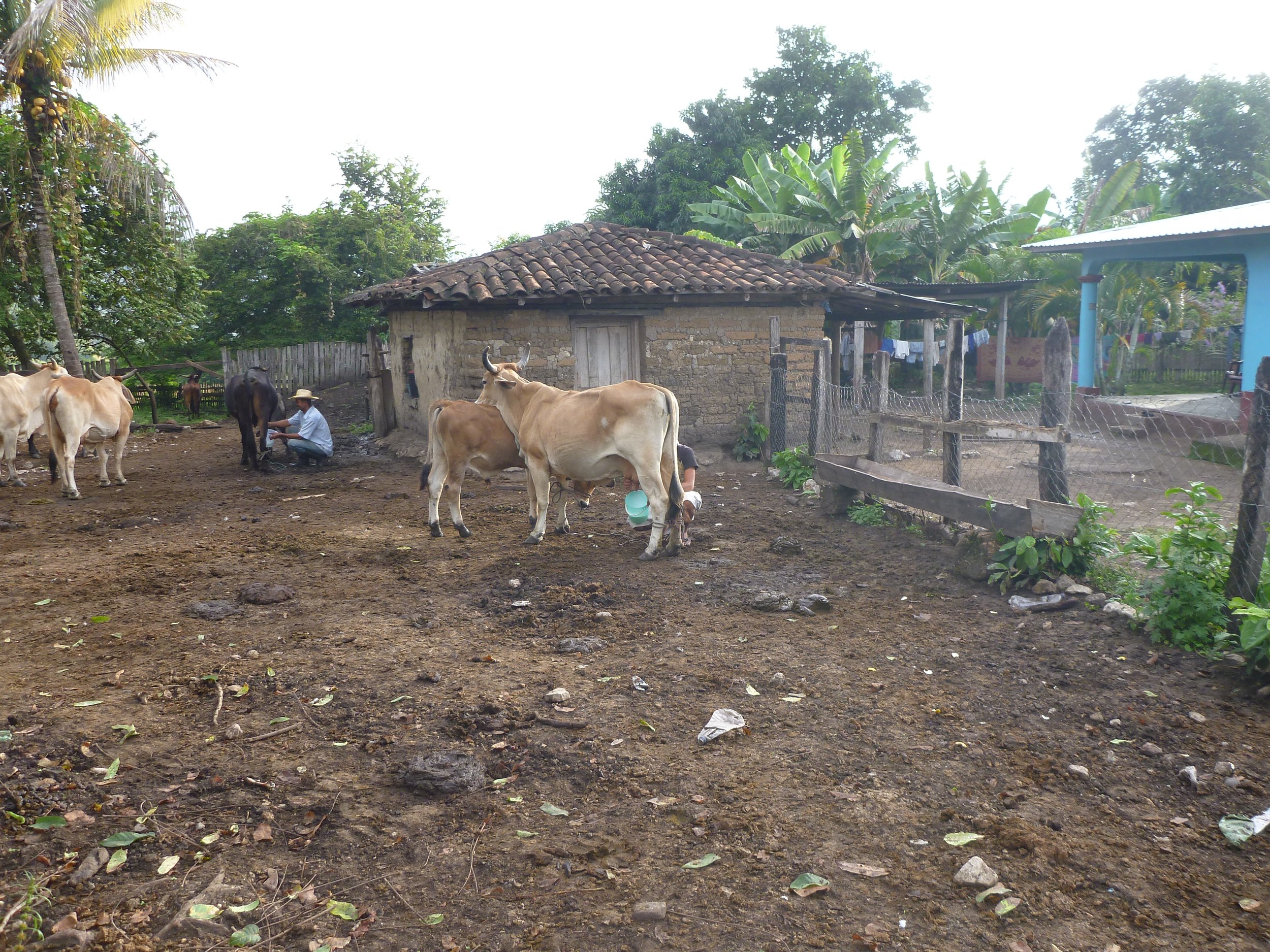
A few families milk cows by hobbling them with twine to make them stand still, catching the milk in a clean soda bottle, and selling it to a passing middleman for use in making cheese.

Pigs are sources of income for families that can afford to feed one for the year it takes to grow it to market size.
